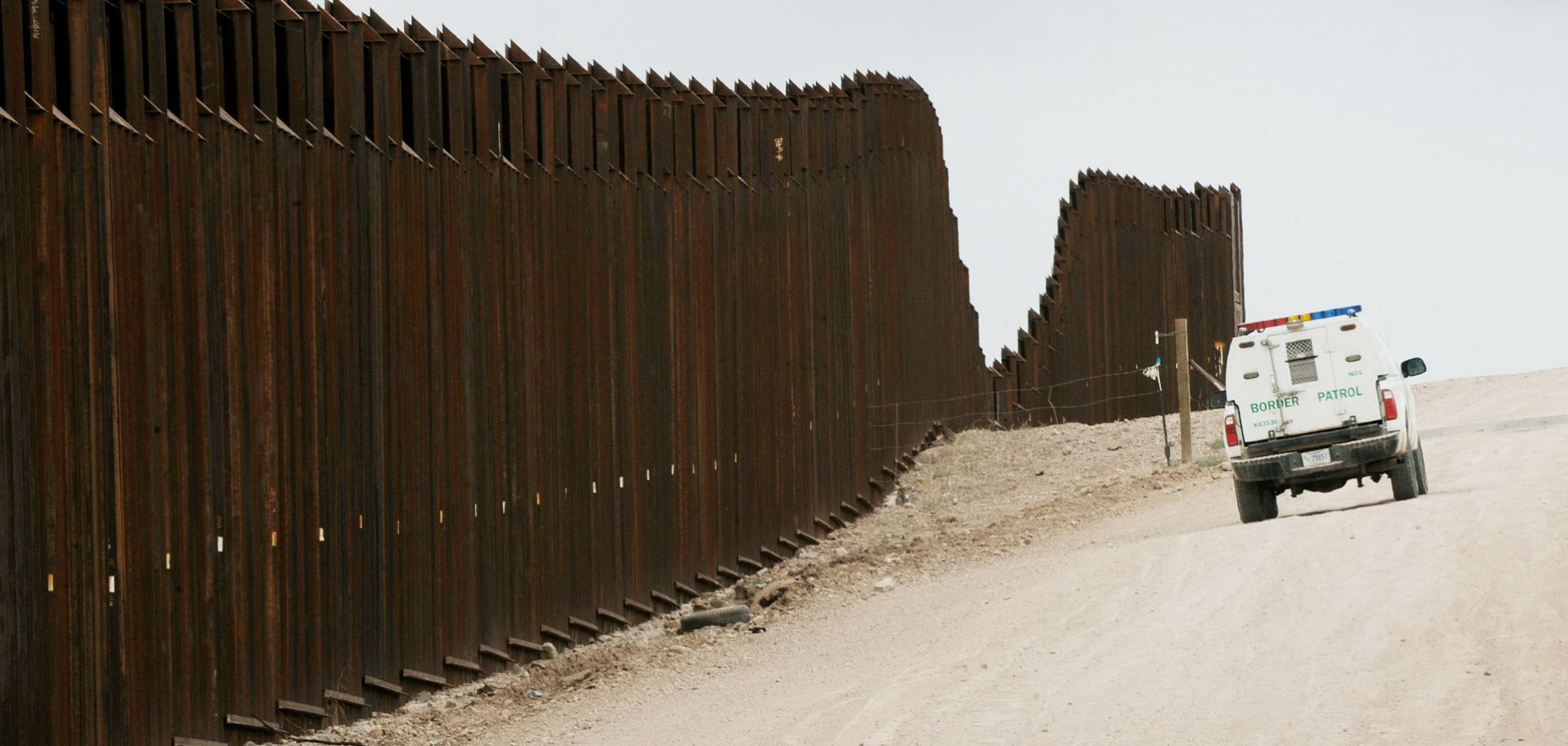GLOBAL PERSPECTIVES
Borders in a Borderless World

Mar 9, 2016 | 08:00 GMT

A US Border Patrol vehicle drives along the fence seperating the US from Mexico near the town of Nogales, Arizona on April 23, 2010. Two Republican senators have proposed sending 3,000 more US National Guard soldiers to quell violence spilling over the border between their home state of Arizona and Mexico. In a 10-point plan for beefing up security in the area, Senators John McCain and John Kyl also called for permanently adding 3,000 US Custom and Border Protection Agents to the Arizona/Mexico border by 2015. They also called for completing construction of 700 miles of fencing along the border and beefing up unmanned aerial vehicle patrols so that they could be run 24 hours a day.
(MARK RALSTON/AFP/Getty Images)
Subscribe Now
SubscribeAlready have an account?
